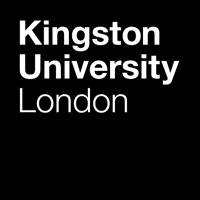fees waived
Pharmacology, BSc (Hons)
Kingston University, United Kingdom
Subject ranking
UK / Guardian 2025 26th
UK / Times 2025 39th
UK / CUG 2024 40th
Costs
food & rentS$25K / year
Entry requirements
Scholarships
11 - 20 available
21 - 50 available
Unlimited quantity
Unlimited quantity
Limited quantity
Information
Code
Code
Intakes
Website (External)
Programmes
Information
Duration
2028
Course summary
Reasons to choose Kingston
- This course meets the core curriculum requirements set out by the British Pharmacological Society (BPS), the professional association for pharmacologists.
- This course is accredited by the Royal Society of Biology.
- Our expert team includes Joan Jarman, who was awarded the BPS Excellence in Teaching Award in 2020.
- Our commitment to high quality teaching has been recognised with a Teaching Excellence Framework (TEF) Gold rating. The University has received an overall rating of Gold, as well as securing a Gold award in the framework's two new student experience and student outcomes categories.
Modules
Example modules– System Pharmacology– Chemotherapy of Infectious and Neoplastic Diseases– Drugs, Brain and Behaviour.For a full list of modules please visit the Kingston university course webpage.
Assessment method
Teaching includes lectures, tutorials and practical laboratory work. There is an emphasis on problem-based/case-based learning as the course progresses.Assessment is by exams and also a variety of different forms of coursework, including oral presentations, reports, essays and poster presentations.
Professional bodies
Professionally accredited courses provide industry-wide recognition of the quality of your qualification.- British Pharmacological Society
Example modules – System Pharmacology – Chemotherapy of Infectious and Neoplastic Diseases – Drugs, Brain and Behaviour. For a full list of modules please visit the Kingston university course webpage.
A local representative of Kingston University in Singapore is available online to assist you with enquiries about this course.

